Hey team! As we continue to adapt to the evolving work landscape, I wanted to share some important updates regarding our work-from-home policy. We've gathered feedback and insights to ensure that our approach supports both productivity and flexibility for everyone. Curious to see how these changes might benefit you? Read on for all the details!

Purpose and Objectives
The purpose of the work-from-home policy update is to enhance employee productivity and work-life balance while adapting to the evolving workplace dynamics brought about by recent global events. The objectives include establishing clear guidelines for remote work arrangements, outlining expectations for communication and collaboration using platforms like Zoom and Slack, and promoting a healthy work environment to prevent burnout. Additionally, the policy aims to support the integration of technology resources, ensuring all employees have access to necessary tools and software, like VPNs and cloud storage, to maintain data security and facilitate efficient project management. Furthermore, the update emphasizes fostering a culture of accountability and trust while providing employees with flexibility in their working hours.
Eligibility and Scope
A work-from-home policy update addresses the criteria enabling employees to engage in remote work, enhancing flexibility in the modern workplace. Eligibility factors, such as employee roles, performance metrics (meeting annual goals of 90% or higher), and departmental needs, are crucial. The scope of this policy encompasses all full-time employees working in corporate offices located in the United States, specifically those contributing to projects like software development and customer support, requiring minimal on-site presence. Additionally, guidelines outline equipment provision, ensuring employees have access to essential tools like laptops (specifications mentioned) and secure VPN connections to facilitate productivity while maintaining data security standards.
Equipment and Technology Requirements
The updated work-from-home policy outlines essential equipment and technology requirements for remote employees. Each employee must have a reliable computer, preferably with a minimum of 8 GB of RAM and a multi-core processor for optimal performance during video meetings and collaboration tools. A dedicated high-speed internet connection (at least 25 Mbps download and 5 Mbps upload) is crucial to ensure smooth communication via platforms like Zoom and Microsoft Teams. Additionally, employees should maintain a quiet and ergonomic workspace to enhance productivity and comfort. Security software, such as antivirus and VPN access, is mandatory to protect sensitive company data while working remotely. Regular maintenance checks on all devices are recommended to avoid technical issues that could impede workflow.
Communication and Reporting Expectations
The work-from-home policy update outlines new communication expectations aimed at improving collaboration and productivity among remote teams. Weekly check-ins are scheduled every Monday at 10 AM to ensure alignment on project goals and tasks, enhancing accountability. Teams must utilize tools like Slack for instant messaging and Zoom for video conferencing, fostering effective communication. Daily reports summarizing progress should be submitted by 5 PM, providing visibility into individual contributions. Additionally, all team members are encouraged to schedule biweekly feedback sessions to discuss challenges and share best practices. Clear and consistent reporting will support ongoing performance evaluation and team cohesion.
Security and Confidentiality Measures
The update regarding work-from-home policy emphasizes security and confidentiality measures essential for maintaining the integrity of sensitive company data. All employees working remotely must utilize Virtual Private Networks (VPN) alongside reinforced firewalls to protect against unauthorized access. Password requirements, including a minimum of 12 characters incorporating upper and lower case letters, numbers, and special symbols, will be strictly enforced to enhance account security. Employees are also required to secure physical workspaces, ensuring confidential documents are stored safely and access is limited to authorized personnel only. Furthermore, regular cybersecurity training sessions will be scheduled quarterly to educate the workforce on best practices for identifying phishing attempts and other digital threats. Compliance with these measures is crucial for safeguarding intellectual property and ensuring a secure remote work environment.

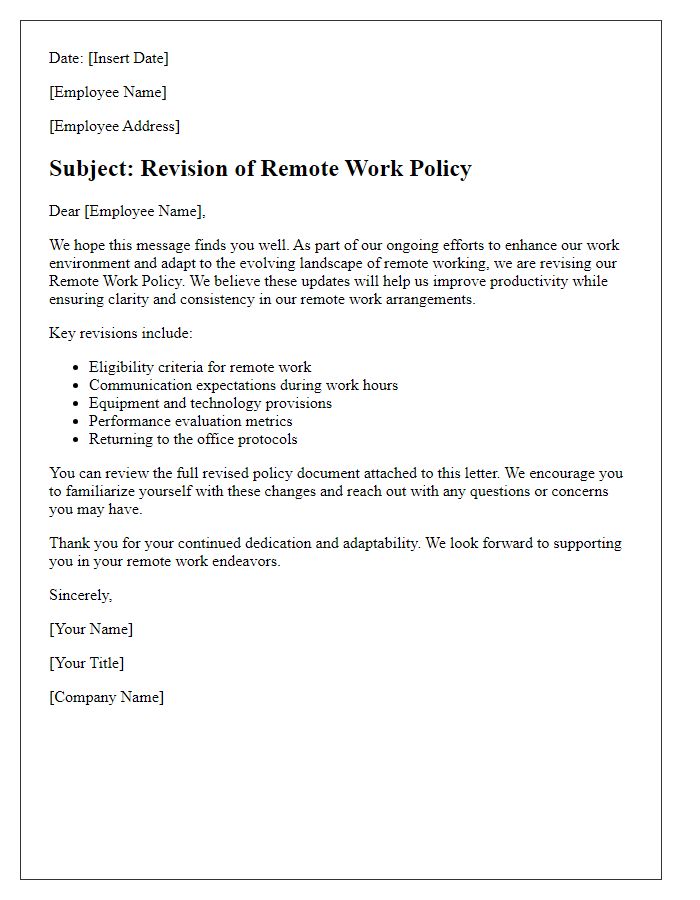
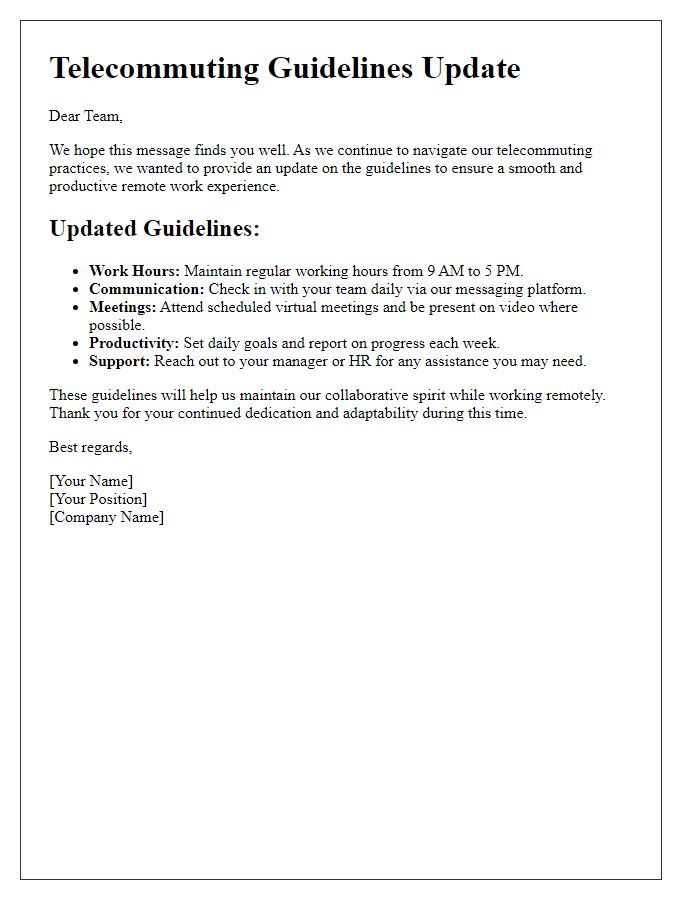
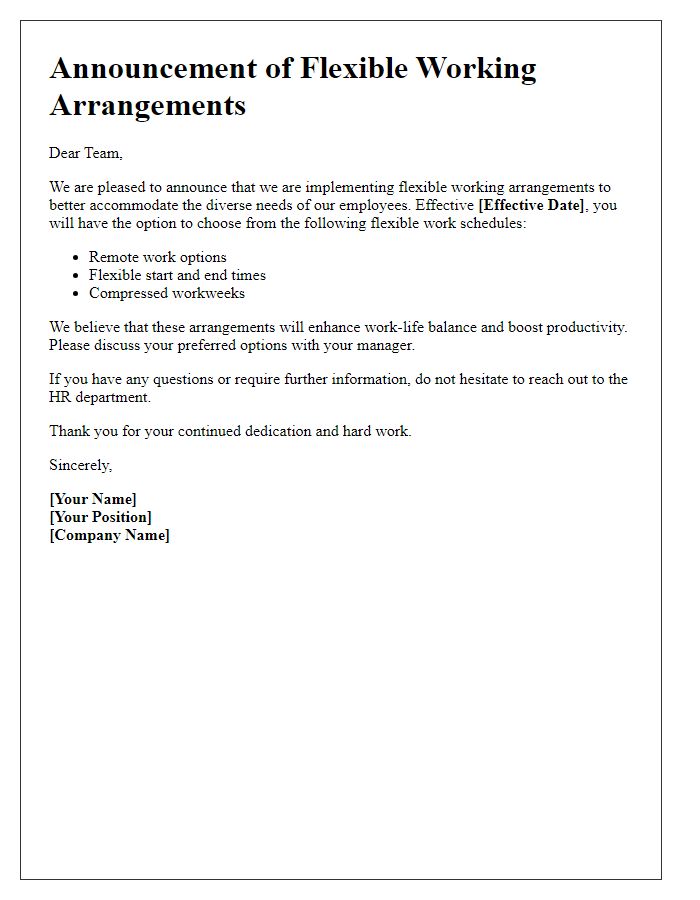
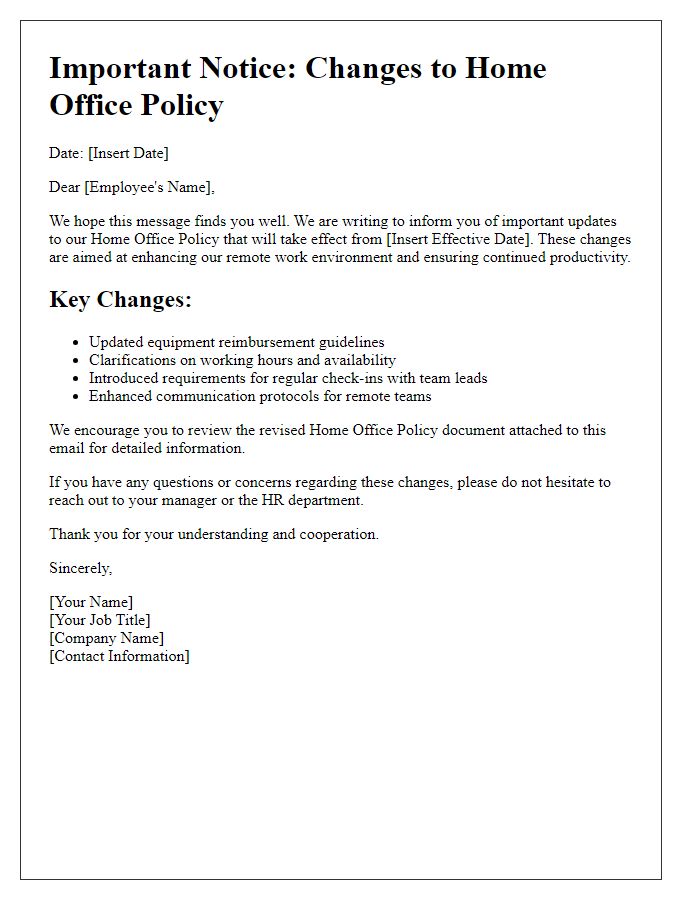
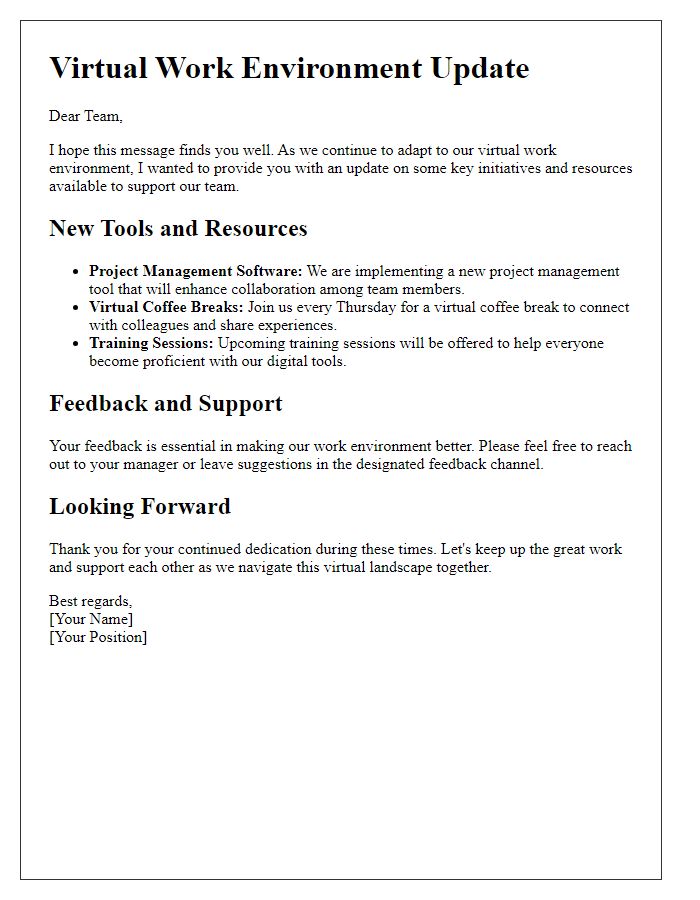
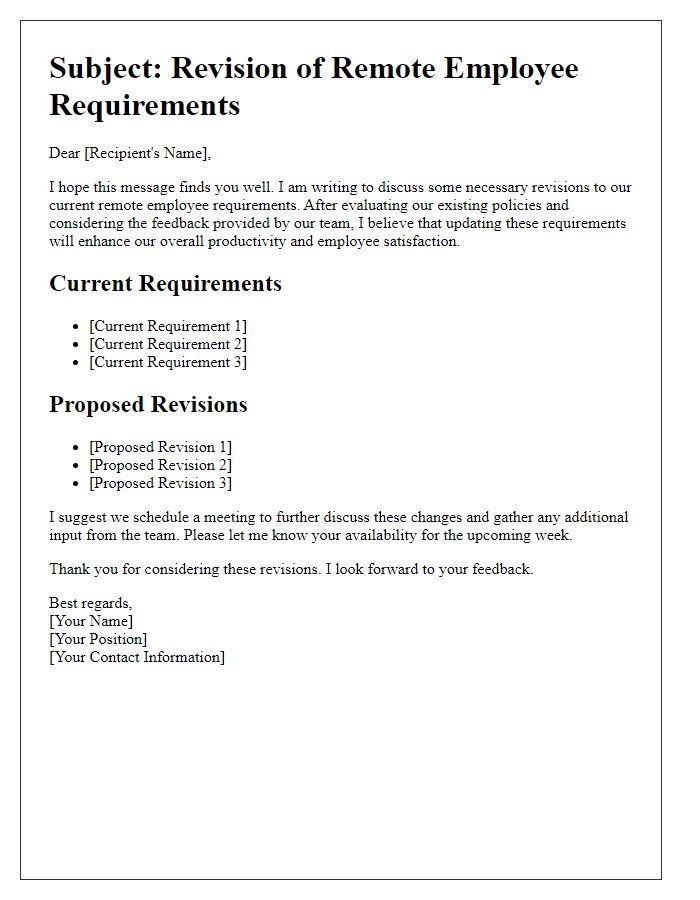
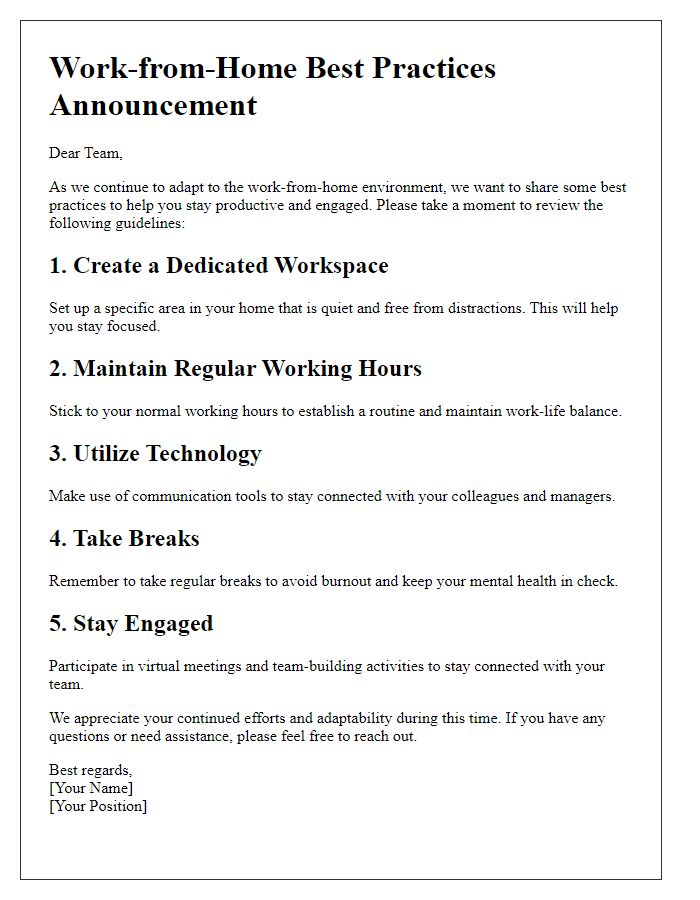
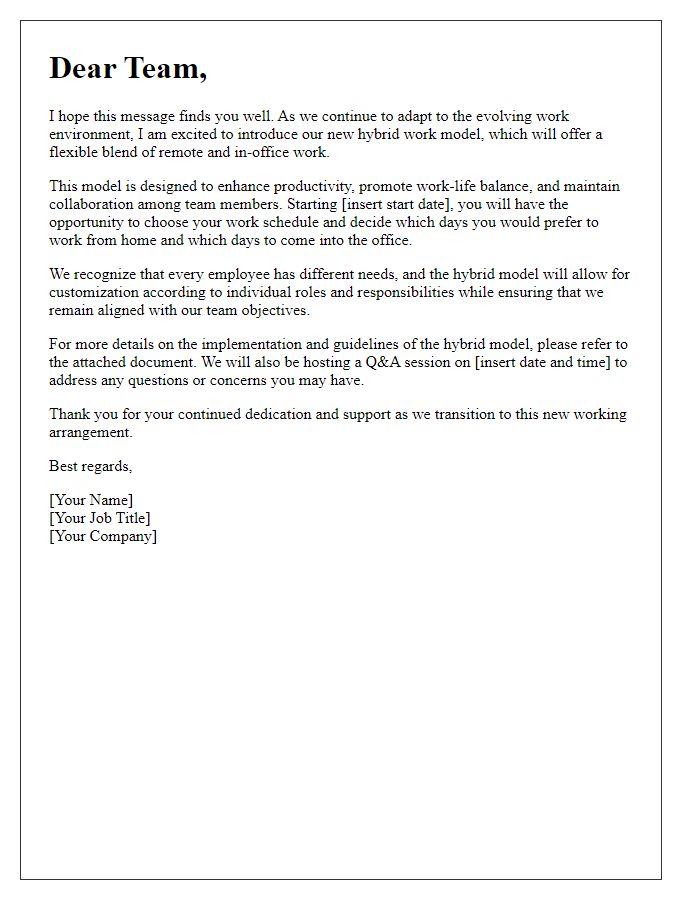
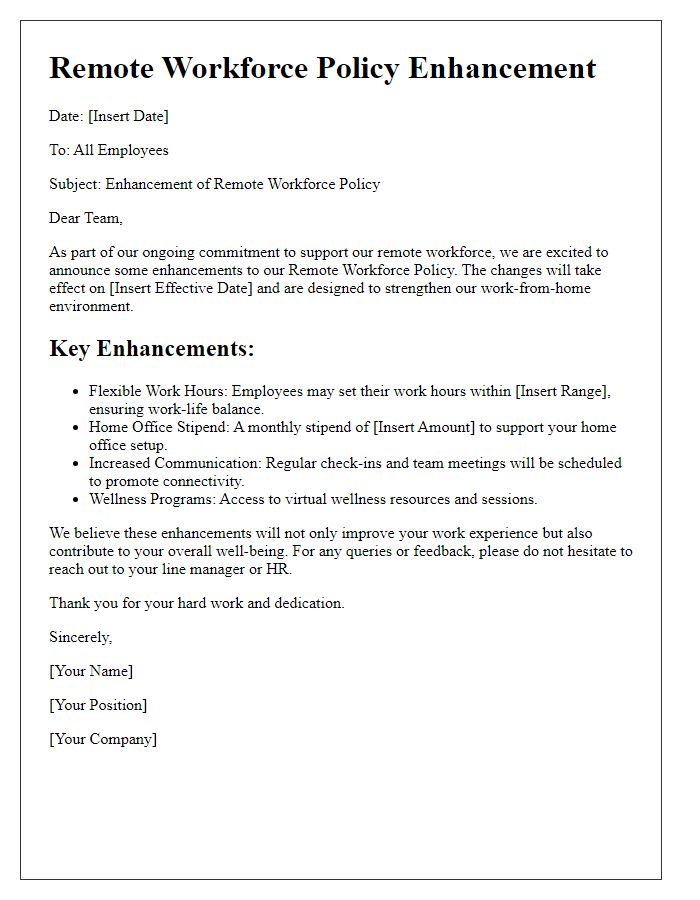
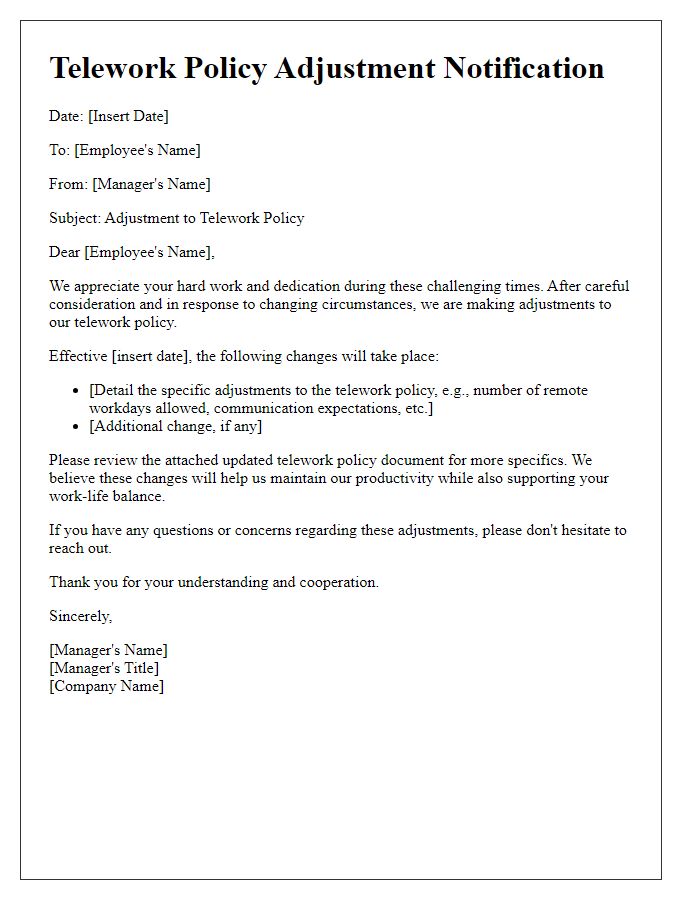


Comments